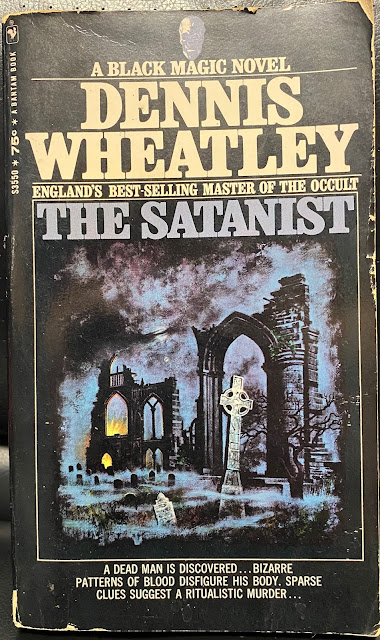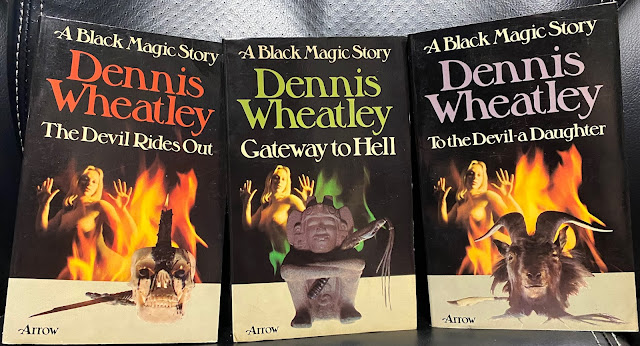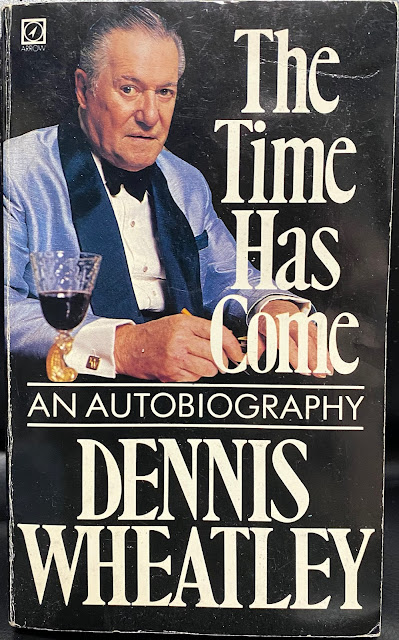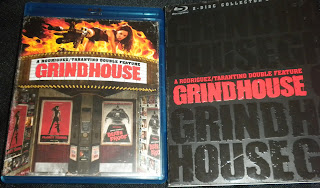Dennis Wheatley 1897-1977
For decades, one of the top selling authors in the U.K. was a man called Dennis Wheatley. His books were published in many countries around the world and translated into numerous different languages. A handful of his novels were even adapted into films.
Wheatley's novels, by and large, were thrillers in the purest sense-- they thrilled his audience. His books contained things such as adventure, romance, espionage, war, and, probably most famously, the occult. Out of the fifty-plus novels he wrote, there are a total of nine which are typically categorized as "black magic stories". These books are not a series really (although some of the included novels are part of various series he wrote), just a general topic that these books were lumped under by the publisher. The truth is that some of the novels in that group contain little or no black magic. Others, however, certainly are stories of black magic.
The first of these books was 1934's The Devil Rides Out. This novel is part of a series revolving around his character, the Duc de Richleau (in some books it is spelled Duke). It deals with one the Duke's friends getting involved with a group of people using black magic. In the late '60s, Hammer Films adapted the novel into one of its most classic films, starring the always great Christopher Lee and the delightful Charles Gray.
After this came Strange Conflict. This one is set during World War II. The Germans somehow seem to have access to classified information about British convoys. The Duke is the one to handle it and he realizes that it is the result of occult powers gained through black magic.
Wheatley found himself too occupied with World War II for a few years to write a whole lot, but he came back in full force after. In 1948, he published The Haunting of Toby Jugg. This is a rare one in that it is told in first person. The point of view works perfectly to bring the reader along the pathway of paranoia and dismissal of suspicions the main character, Toby, goes through. Toby is an RAF pilot who was injured in the war. He is now paralyzed from the waist down and is recovering at his family home. He dreads each night, when he begins to feel that somebody is working against him in some sinister fashion, trying to drive him mad or worse.
Next came To the Devil-- a Daughter. This tale deals with the creation of a homunculus. It was later followed by another novel featuring some of the same characters, The Satanist. This one deals with a widow trying to find the people who murdered her husband, as well as the authorities who are also investigating the case. This leads to a group involved in black magic.

American paperback edition of The Satanist
The Ka of Gifford Hillary is one of the "black magic stories" which doesn't actually deal with black magic. Certainly, you could say it is an occult-based story, but there is nothing of black magic in it. It tells the story of a man who is killed (or at least freed from his body temporarily) due to some treachery in his home. There are some really well-done, tense moments in this story. There are also some very tedious political sections (Wheatley was actually quite aware of this and in the context of the story, he advises the reader that he or she can skip ahead to a certain page if uninterested in the political stuff).
His WWII-era spy character, Gregory Sallust, encountered the occult in They Used Dark Forces, which sees him getting involved with an occultist who uses astrology to determine when they should make any move.
His final two novels typically included under the heading of "Black Magic Stories" were The Gateway to Hell, again featuring the Duc and his friends, and The Irish Witch, part of his historical fiction series set during the time of Napoleon, featuring his spy character, Roger Brook. There are various other books he wrote which contain some occult elements, but those are not generally categorized with these nine novels, usually because the occult elements are too minor in relation to the story.

Paperback editions from the 1970s
Wheatley's writing is certainly old-fashioned, but that is to be expected, as he was born in the late 19th century. He was often criticized for his lack of writing style during his lifetime, but he responded to this by saying that his writing style wasn't all that great, but he could, however, tell a story. And he was certainly right in this regard. Despite his flaws as a writer, his books are, in large part, quite enjoyable. One issue readers often encounter are the "info dumps". Wheatley would just pretty much bring the narrative to a screeching halt on occasion to shovel in a bunch of exposition about a topic. A particularly notorious one is the previously mentioned instance in The Ka of Gifford Hillary, where some of the characters discuss their concerns regarding the Soviets and the narrator advises the reader that if he or she is not interested in the topic, as it has no real bearing on the story itself, the reader can skip ahead to page 40, without missing anything integral (the page number mentioned might have been changed in various editions depending typesetting, but I am not sure, although that is the page number listed in the paperback version I have). His Roger Brook novels are some of the most prevalent with the "info dumps", in my opinion, as there are chapters in those novels that just read like a history text, discussing the movements of Napoleon's forces and obstacles they encountered, and so on.

Paperback edition of Wheatley's autobiography
Then there is Wheatley's idea of the occult, black magic, etc. While he certainly did quite a bit of research, he tended to just mix it all up into one thing, whether it was voodoo, the magick of Aleister Crowley, astrology, and so on-- all were part of the same thing in his writing: the realm of the Devil.
 |
| First edition of Phil Baker's 2009 biography on Dennis Wheatley |
Of course, having grown up in a very different time, Wheatley's perspective on the world was fairly different than those of people today and this often shows in his novels. There are certainly some racist elements in many of his novels, some more than others (probably the biggest one in this regard is Uncharted Seas). In fact, more recent editions of his novels have come out with some editing by the publishers to sanitize the books for modern audiences. While I can understand their reasoning behind this, I disagree with the practice, as it is not reflective of what the author wrote and I feel it is better to not pretend like that sort of thing wasn't as prevalent as it was or that it was not in novels of the time. It just seems a bit disingenuous to me. Some people seem to forget that reading something does not mean you agree with what is written in that work.
In the end, if you are looking for some good, old-fashioned fun thrillers, check out a couple of his books. Whether you track down an older edition with all its non-PC elements intact or a newer edition with the modernized changes, I think you will have a fun time.



Comments
Post a Comment